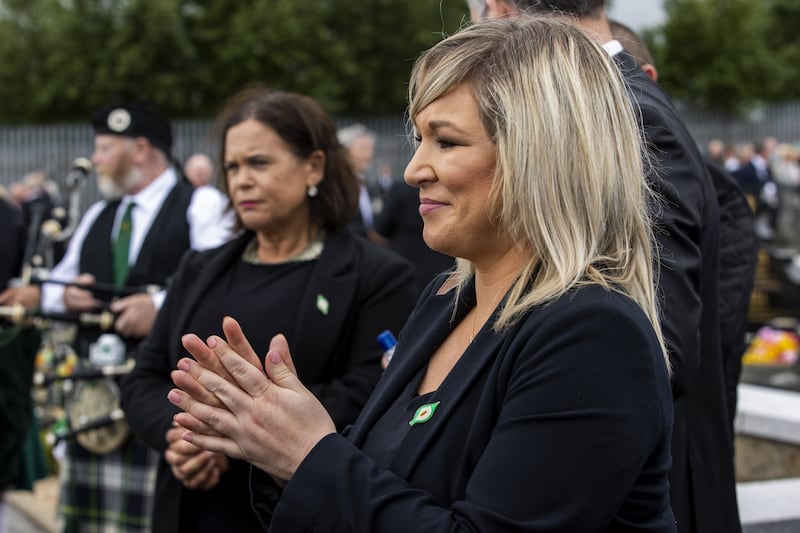There can be no doubt that we are experiencing one of the most alarming stages of the pandemic, with schools struggling to avoid closure, businesses fearing for their survival and above all our health service under enormous strain.
It is a crisis which demands a massive and carefully coordinated response at Stormont if disastrous outcomes are to be avoided on a number of fronts in the coming weeks.
Instead, we find that one party is repeatedly threatening the future of the institutions over protocol arrangements which were an inevitable consequence of the Brexit debacle it helped to create in the first place.
As the DUP's decision to put its trust in Boris Johnson will go down as a strategic blunder of historic proportions, it might have been expected to try and rebuild its credibility by concentrating on playing a full role in the battle against covid.
It is appalling that the party could seriously consider another fundamental error by forcing the suspension of the entire power-sharing administration in the middle of the worst public health upheaval in living memory.
The DUP leader, Jeffrey Donaldson, initially claimed back in October that his colleagues could walk out of the Executive within weeks if his demands over the protocol were not met, and was left looking like a marginalised figure when effectively nothing happened.
He revised his timescale through a recent Sunday Telegraph interview which described January as an `absolutely crucial month', and his colleague, First Minister Paul Givan, then referred to the `inevitable' collapse of Stormont if the DUP did not get its way.
However, successive opinion polls have indicated that a clear and growing overall majority of voters support the protocol, with significant voices like the Ulster Unionist leader Doug Beattie and the independent unionist councillor John Kyle firmly distancing themselves from the DUP’s position.
While Dr Kyle would like to see the kind of minor amendments to the protocol which have always been achievable, he has strongly highlighted the `remarkable opportunities’ which it also presents.
The Assembly has been brought down at different periods in the past by both unionists and nationalists, but never when the basic safety of ordinary citizens was in such peril.
There can be no possible justification for suspending devolution in the present circumstances, and the likelihood that it would never return might well turn out to be the least of our problems.






